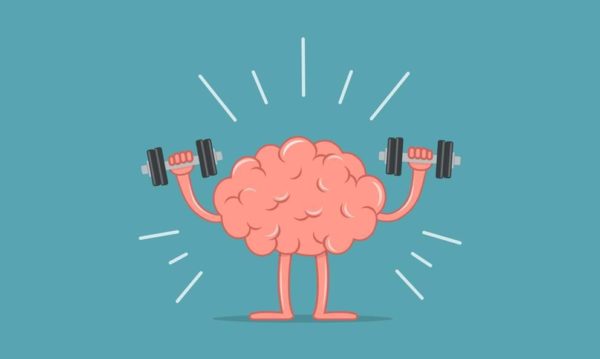In the fast-paced world we live in, finding moments of peace and clarity can seem like a distant dream. But what if the key to unlocking better mental health was right in front of us all along? In this article, we delve into the powerful connection between physical activity and mental well-being, exploring how something as simple as a walk in the park or a session at the gym can have a profound impact on our overall happiness and cognitive function. Join us on a journey to discover the transformative benefits of exercise for the mind.

Exploring the Link: Physical Activity and Mental Health
Physical activity is not only beneficial for our bodies but also for our minds. Studies have shown that engaging in regular exercise can have a positive impact on mental health. Whether it’s going for a run, taking a yoga class, or playing a sport, getting active can help reduce symptoms of anxiety and depression.
One of the reasons for this link between physical activity and mental health is the release of endorphins during exercise. These feel-good chemicals can help improve mood and reduce stress levels. In addition, regular physical activity can also improve sleep quality, increase self-esteem, and boost overall mental well-being.
So next time you’re feeling down or stressed out, consider getting moving! Whether it’s a brisk walk in nature or a dance workout in your living room, taking the time to prioritize physical activity can have a significant positive impact on your mental health.
Understanding the Science Behind the Connection
Physical activity has long been associated with a multitude of health benefits, from improving cardiovascular health to maintaining a healthy weight. However, what many may not realize is the profound impact that physical activity can have on mental health. between physical activity and mental health can help shed light on why exercise is so beneficial for our overall well-being.
When we engage in physical activity, our bodies release endorphins, which are often referred to as “feel-good” hormones. These endorphins interact with receptors in the brain to reduce our perception of pain and trigger positive feelings. Additionally, exercise can increase the production of neurotransmitters like serotonin and dopamine, which play a crucial role in regulating mood and reducing feelings of stress and anxiety.
Furthermore, physical activity can act as a form of meditation in motion, allowing individuals to focus on the present moment and block out intrusive thoughts. This mindfulness practice can help improve concentration, boost self-esteem, and promote a sense of accomplishment. In essence, the science behind the connection between physical activity and mental health demonstrates that staying active is not only beneficial for our physical health but also our mental well-being.
Benefits of Exercise for Psychological Well-being
One of the most underrated benefits of exercise is its positive impact on psychological well-being. When we engage in physical activity, our bodies release endorphins, also known as “feel-good” hormones, which can help reduce feelings of anxiety and depression. Regular exercise has been shown to improve mood, boost self-esteem, and enhance overall mental health.
Furthermore, physical activity can serve as a powerful stress-relief tool. When we exercise, our bodies experience a reduction in stress hormones, such as cortisol, and an increase in endorphins, which can help combat feelings of tension and overwhelm. This natural stress relief can have a significant impact on our mental well-being, helping us feel more relaxed and at ease.
In addition to these immediate benefits, regular exercise can also have long-term effects on our mental health. Studies have shown that individuals who engage in consistent physical activity are less likely to experience symptoms of depression and anxiety. Exercise can also improve cognitive function and memory, making it a vital component of a holistic approach to mental well-being.
Incorporating Physical Activity into Your Mental Health Routine
Physical activity is not only crucial for maintaining a healthy body but also plays a significant role in improving mental health. The connection between physical activity and mental health is undeniable, as exercise has been shown to have a positive impact on mood, stress levels, and overall well-being.
When you incorporate physical activity into your mental health routine, you are not only taking care of your body but also actively contributing to the well-being of your mind. Whether it’s going for a walk, practicing yoga, or hitting the gym, engaging in regular physical activity can help reduce symptoms of anxiety and depression, boost self-esteem, and improve cognitive function.
Research has shown that exercise releases endorphins, which are known as the “feel-good” hormones that can help alleviate feelings of sadness and anxiety. In addition, physical activity can also provide a much-needed distraction from negative thoughts and rumination, allowing you to focus on the present moment and enjoy the benefits of movement.
In conclusion, it is evident that physical activity and mental health are intricately linked, with exercise playing a crucial role in improving overall well-being. By incorporating regular physical activity into our daily routines, we can not only maintain physical fitness but also enhance our mental health and emotional well-being. So, next time you feel overwhelmed or stressed, remember that a quick workout or a brisk walk can do wonders for both your body and mind. Embrace the connection between physical activity and mental health, and take the first step towards a happier, healthier you.



Comments are closed.